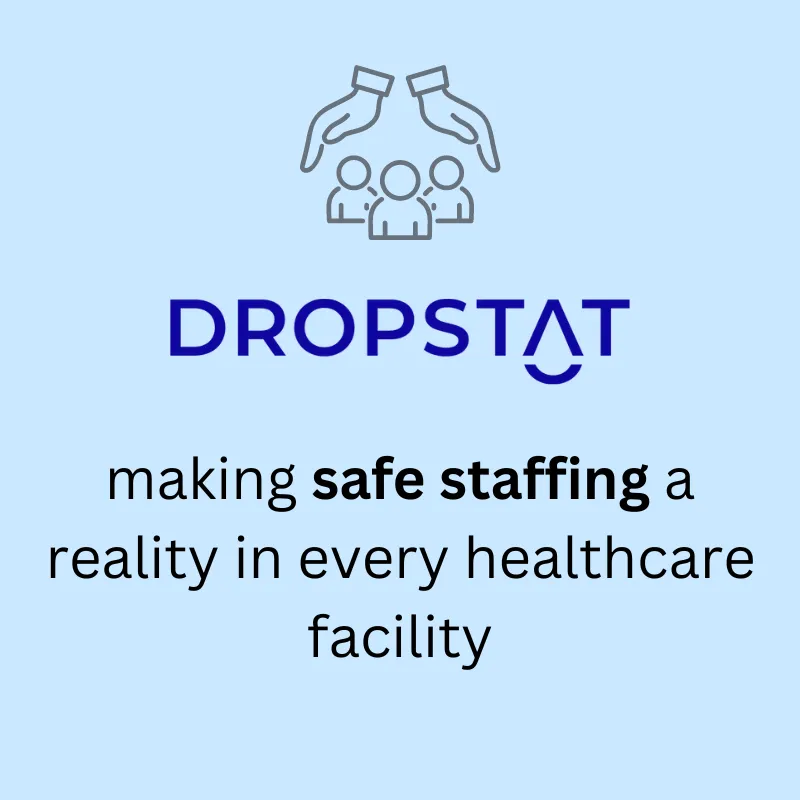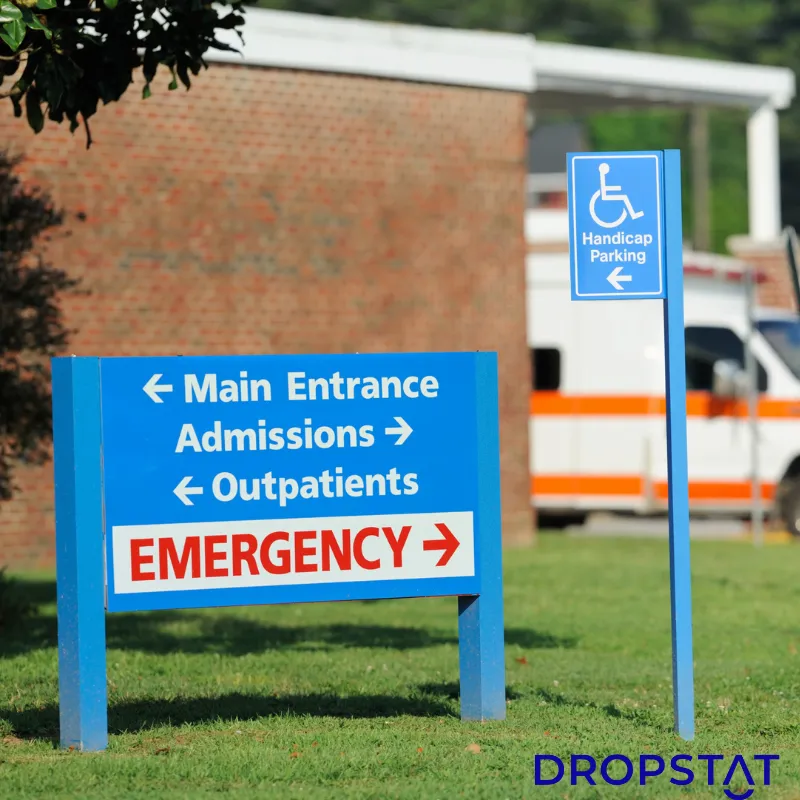In addition, the HRRP promotes devising patient-specific discharge plans that increase the likelihood that patients will adhere to their post-discharge regimens. Every healthcare institution’s journey to increase profitability must prioritize efforts to reduce hospital readmissions. This directly affects public care ratings of the organization while reducing fines associated with excess readmissions.
One method used to delineate facility care ratings is by calculating the Excess Readmission Ratio (ERR), which compares the rates of unplanned, predicted-to-expected readmissions for certain conditions/procedures that are a part of the program. Some conditions within the HRRP include Heart Failure, Chronic Obstructive Pulmonary Disease, and Acute Myocardial Infarction.
5 Tactics to Reduce Unplanned Hospital Readmissions
Hospitals should focus on reducing readmissions via:
- Ensure adequate nurse-to-patient ratios
The cornerstone of high-quality healthcare is a workforce that can adequately care for the patient volume and needs. A care team that is understaffed and overwhelmed will be unable to provide high-quality care and treatment, which requires attention to detail and the ability to provide comprehensive discharge planning.
Furthermore, a vital part of the nursing role is to ensure that patients obtain adequate health literacy through patient education before discharge. However, patient education can not be achieved if nurses are overwhelmed, fatigued, and stressed due to unsafe nurse-to-patient ratios. Dropstat is built with safe staffing in mind for prioritizing safe nurse-to-patient ratios while also considering the most financially efficient nursing disciplines to staff a shift and ensuring that overtime shifts are reduced.
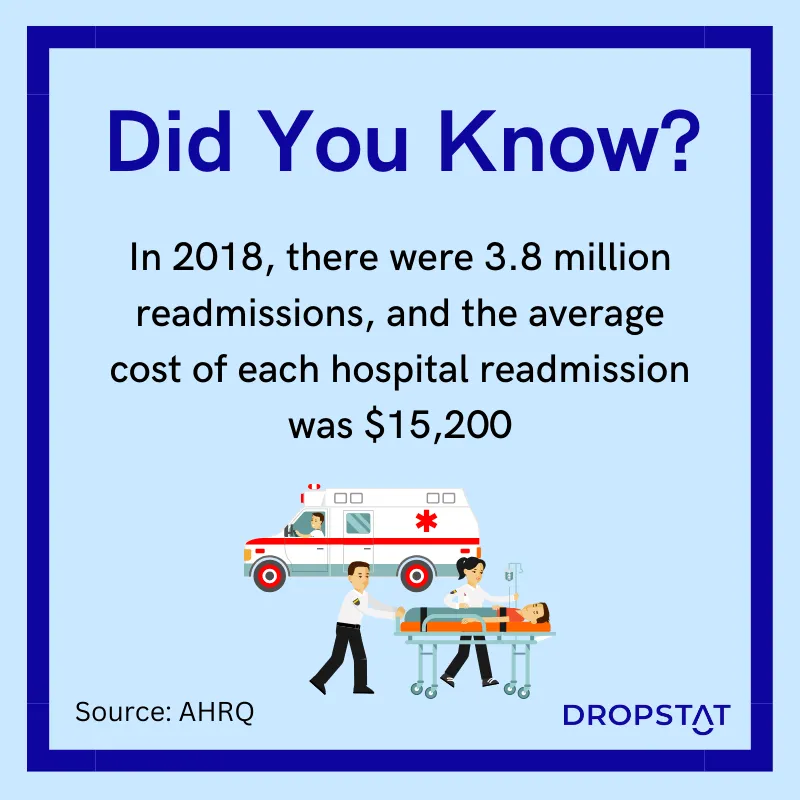
2. Identify high-risk patients
Providing sufficient time to review each patient’s medical history and assess patient self-management abilities will aid in the ability to identify patients who are at a higher risk for readmission. For example, when patients can adhere to a discharge plan, the risk adjustment for that patient is lower than it is for high-risk patients who require more individualized attention post-discharge. Consequently, when patients are given sufficient education to follow their treatment regimen, they are more likely to have positive health outcomes, which decreases the chances of readmissions.
3. Improve coordination among the care team
Another critical component of reducing unplanned readmissions is ensuring that the coordination among your care team is efficient, transparent, and effective. One method that Dropstat implements to prevent unplanned readmissions and reduce the readmission rate within your facility is to increase the efficiency and effectiveness of communication among your care team. This ensures that your healthcare staff can collaborate to provide appropriate care regarding the scope of practice and staffing ratios within your institution.
Additionally, the chat feature embedded within the Dropstat platform gives schedulers and administrators instantaneous mass communication capabilities with targeted internal staff members to decrease the need for agency and external staff.
4. Reduce hospital-acquired infections
Oftentimes, hospital-acquired conditions can cause unplanned readmissions as a result of complications and inadequate medical attention within a healthcare facility. However, ensuring that your facility schedules the correct amount of staff with the right clinical competencies decreases the risk of poor healthcare and insufficient nursing attention.
Having a workforce that can provide more specialized attention to each patient also improves the chances of identifying risks that can lead to infections or other factors that contribute to readmissions. Fortunately, healthcare facilities can utilize Dropstat’s features, such as auto-posting shifts based on staffing patterns within the facility.
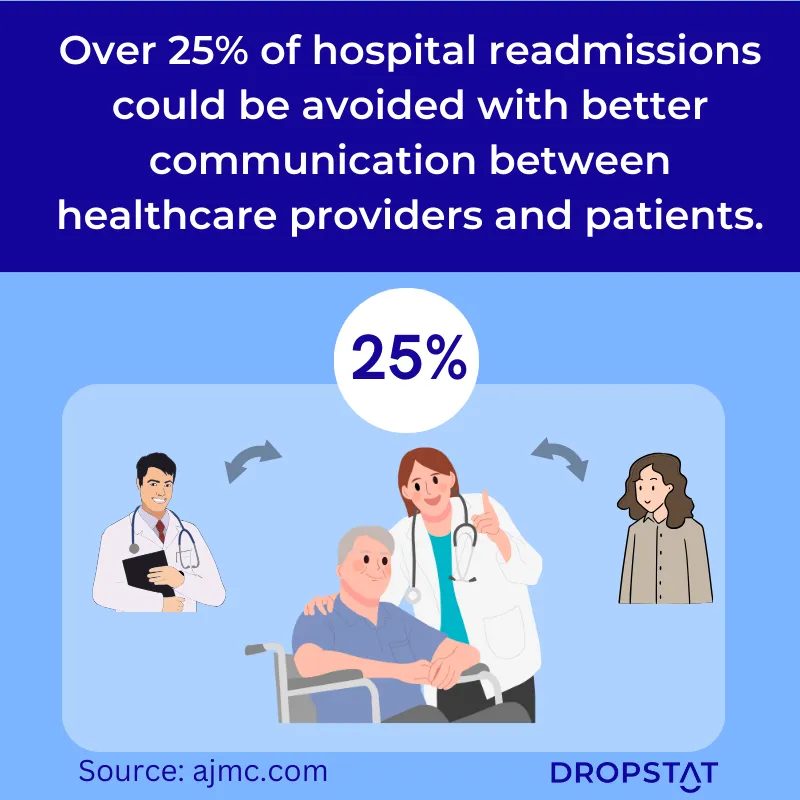
5. Utilize technology to implement effective interventions
Finding the right technology to improve your healthcare system can provide optimal transitional-care services and staff support to all clinical and administrative departments. For example, EHR software enables providers to securely and quickly transfer patient health information to other providers and allows patients to communicate with them and access personal healthcare records.
Furthermore, instituting advanced scheduling software can mitigate many challenges, such as
- short staffing
- a lack of proper clinical competencies to treat specific patient demographics and
- excessive overtime.
Dropstat specifically tackles these issues through shift tagging, which indicates when staff will be entering into overtime if they were to work a shift and whether their shift is above the average pay. This allows schedulers to avoid staffing nurses who will be less alert and attentive to patients due to fatigue, which increases the chances of missing health issues associated with readmissions.
What is the Hospital Readmissions Reduction Program?
The goal of the initiative is to motivate healthcare facilities to improve their care quality and coordination. Ultimately, these efforts will improve patient health outcomes and assess readmissions based on 30-day readmissions after discharge. One of the main objectives of the Hospital Readmissions Reduction Program is to improve healthcare quality by creating a direct relationship between quality of care and reimbursement for services.
Benefits of the Hospital Readmissions Reduction Program
The Hospital Readmissions Reduction Program helps healthcare facilities that are striving to reduce costs through healthcare improvement strategies such as care coordination and communication, as well as increasing patient satisfaction. Additionally, operational improvement as a method to reduce hospital readmissions promotes more efficient utilization of hospital resources, which helps prevent unnecessary facility spending on medical equipment and nursing care.
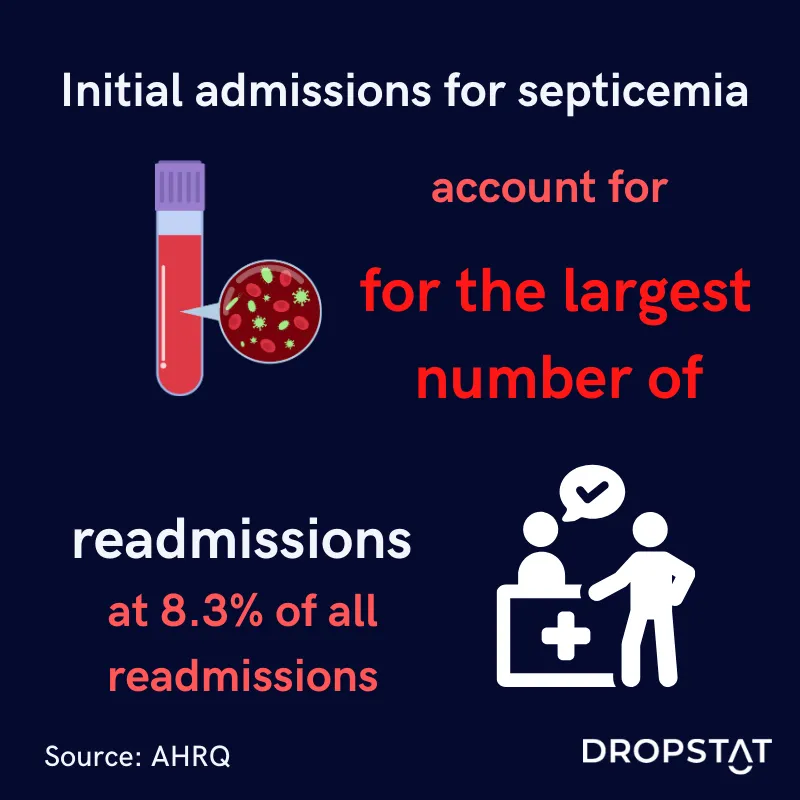
Another financial incentive associated with the HRRP is fewer monetary penalties for healthcare institutions with do not experience excessive readmissions, as well as greater Medicare reimbursement given that readmissions do not exceed the considered acceptable rate, measured by the number of predicted readmissions for a specific condition divided by the actual/observed rate of readmissions for that condition.
How Dropstat Helps with Reducing Hospital Readmissions
Dropstat is tackling the issue of readmissions through the lens of safe staffing and a competent workforce. Although there may be barriers to implementing practices that reduce avoidable readmissions, Dropstat’s AI and predictive analytics have been key factors of the platform that many facilities use to decrease the conditions that lead to unplanned, unreasonably high readmission rates. For example, Dropstat’s Shortcast and Master schedules offer increased awareness of gaps in staffing which can have adverse effects on patient outcomes. Ensuring that your facility has reliable and accurate staffing practices guarantees higher patient and public care ratings and increased profitability due to fewer readmissions.
Schedule a demo now to enjoy the great benefits Dropstat has to offer and start lowering your readmission rates by giving your patients optimal care through safer staffing.
